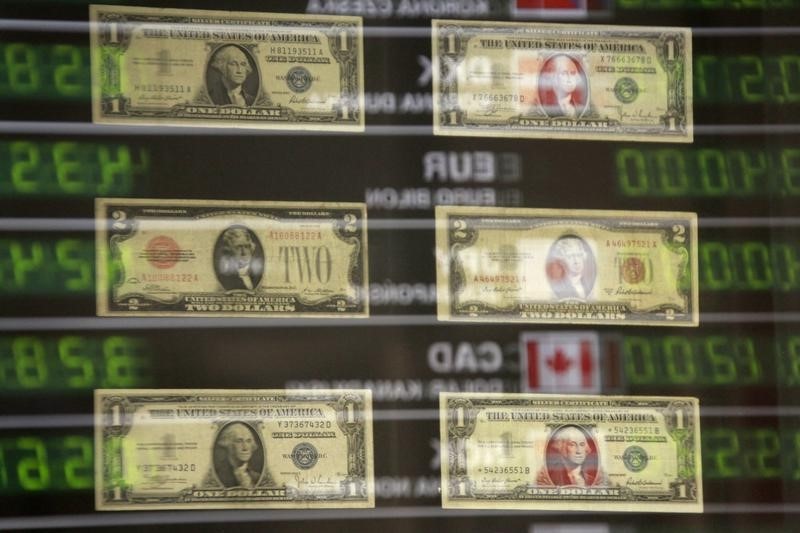(Adds trader comment, Bank of Canada survey, updates prices to close)
* Canadian dollar ends at C$1.3230 or 75.59 U.S. cents
* Bond prices higher across the maturity curve
By Alastair Sharp
TORONTO, Jan 9 (Reuters) - The Canadian dollar ended little changed against a weaker U.S. counterpart on Monday, with a Bank of Canada business outlook survey helping it hold ground even as prices for crude oil, a major Canadian export, tumbled.
The Canadian dollar CAD=D4 settled at C$1.3230 to the greenback, or 75.59 U.S. cents, barely stronger than the Bank of Canada's official close on Friday of C$1.3232, or 75.57 U.S. cents.
"I'm surprised that Canada's not weaker, or dollar-Canada's not higher, given that crude's down more than 3 percent," said David Bradley, director of foreign exchange trading at Scotiabank, adding that volumes were light.
Crude extended losses to nearly 4 percent in post-settlement trade on concern that record Iraqi crude exports and rising U.S. output would undermine OPEC's efforts to curb global oversupply. O/R
"I'd be more comfortable buying (U.S.) dollars at this point than selling them because I think we're close to the bottom of the range," Bradley said.
The Canadian currency hit its strongest in more than three weeks on Friday following surprisingly strong domestic employment and trade data, before pulling back to end barely higher.
Canadian companies are more optimistic about future sales as demand picks up and plan to boost investment and hiring, but businesses are uncertain about potential U.S. protectionism and signs of substantial labor market slack exist, the Bank of Canada said on Monday. currency's strongest level of Monday's session was C$1.3198, while its weakest was C$1.3278.
The loonie made a strong gain against the pound, which slid after British Prime Minister Theresa May said she was not interested in Britain keeping "bits" of its EU membership. fell against the safe-haven yen and the Australian and New Zealand dollars, fellow commodity currencies.
Canadian government bond prices were higher across the maturity curve, with the two-year CA2YT=RR price up 2.5 Canadian cents to yield 0.752 percent and the benchmark 10-year CA10YT=RR rising 33 Canadian cents to yield 1.69 percent. (Editing by Bernadette Baum and Andrew Hay)
